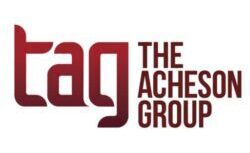On October 31, FDA announced a romaine lettuce E. coli O157:H7 outbreak for which the active investigation had ended and the outbreak appeared to be over. As such FDA stated there was no “current or ongoing risk to the public” and no avoidance of the produce was recommended. Since that announcement, however, I have seen a number of articles condemning FDA and CDC. Why? Because the traceback investigation of the outbreak began in mid-September when CDC notified FDA of an illness cluster that had sickened 23 people across 12 states. So why the delay in announcing it to the public? Despite the critical (and rather self-serving) stance on the “inexcusable” delay taken by a prominent foodborne illness attorney and his Food Safety “News” publication – which blasted a headline FDA “hid” the outbreak – my stance, having been an FDA official myself involved in outbreak investigations, is that the delay was practical and sensible. Why? As FDA states right in its announcement: When romaine lettuce was identified as the likely source, the available data indicated that the outbreak was not ongoing and romaine lettuce eaten by sick people was past its shelf life and no longer available for sale. Even once romaine was identified as the likely cause, no common source or point of contamination was identified that could be used to further protect the public. During the traceback investigation, the outbreak strain was not detected in any of the samples collected from farms, and there were no new cases. Thus, neither FDA nor CDC identified any actionable information for consumers. So, if it is not in consumers’ best interest to publicize an issue that no longer exists, why should they be driven away from a healthy food alternative? Why should unfounded unease be generated that will damage the industry, providing no benefit for consumers but ultimately impacting their pockets? There is just no upside to making an allegation without information. We’ve seen the impact on consumers and the industry when an announcement of a suspected food turns out to be incorrect; specifically “don’t eat the tomatoes” when it turned out to be jalapeno and serrano peppers. Having learned from such incidents, FDA’s approach is: If we don’t have a message that will help protect the public, then there is no message to be imparted. There is, of course, a balance to be maintained. When there is any potential of need to protect public health, everything possible needs to be done to do so as quickly as possible. But the identification of an unsourced “illness cluster” does not provide actionable information for the public until the traceback is conducted. And once romaine was identified and determined to be unavailable, did it really matter if the announcement was made within one week – or not until six weeks when the final determination is made? We, at TAG, have a great deal of experience joining in on phone calls between FDA, CDC and industry to discuss such situations, available data, and potential impact to determine the best way to protect public health. I have no doubt that if there had been any public health threat in this situation, FDA would have announced it immediately and pushed the industry to take action. Particularly with former Walmart executive Frank Yiannas – who drove public health through the food industry from his Walmart position – now at the helm of FDA’s food policy and response. So, rather than condemn FDA and CDC, I would commend them for getting the balance correct. And, perhaps, instead of any condemning, we should be working together to get the answers faster, to get outbreak data through better, faster, more efficient and coordinated traceability. Our entire system is too slow – a topic we have discussed many times in these newsletters. About The Acheson Group (TAG) Led by Former FDA Associate Commissioner for Foods Dr. David Acheson, TAG is a food safety consulting group that provides guidance and expertise worldwide for companies throughout the food supply chain. With in-depth industry knowledge combined with real-world experience, TAG’s team of food safety experts help companies more effectively mitigate risk, improve operational efficiencies, and ensure regulatory and standards compliance. www.AchesonGroup.com





